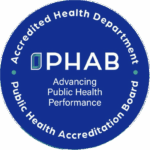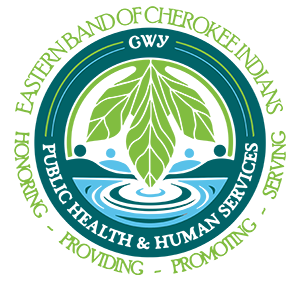Environmental Health & Safety
Public Health & Human Services




Environmental health
is the science and practice of preventing human injury and illness and promoting well-being by:
- Identifying and evaluating environmental sources and hazardous agents and
- Limiting exposures to hazardous physical, chemical, and biological agents in air, water, soil, food, and other environmental media or settings that may adversely affect human health.
As a fundamental component of a comprehensive public health system, environmental health works to advance policies and programs to reduce chemical and other environmental exposures in air, water, soil and food to protect residents and provide communities with healthier environments.
WHAT WE DO
- Investigations of complaints such as: bed bugs, rats, sewage dumping and drinking water issues
- Investigation of food related complaints
- Investigation of complaints regarding well and septic
- Residential Health Concerns such as:
- Insects (i.e. bed bugs, termites, spiders, etc.)
- Rodents (i.e. mice, rats, etc.)
- Waste (i.e. trash, fecal matter, urine, etc.)
- Hazardous materials (i.e. mold, asbestos, lead, etc.)
- Act as a resource for commercial related concerns:
- permits, food trucks, campgrounds, tattoo parlors, restaurants, complaint investigations, etc.)
- Verification of County Inspections
- Investigations of elevated blood lead levels
- Animal bite investigations
- Water sampling and testing
Environmental Health & Safety
43 John Crowe Hill Dr
P.O. Box 666
Cherokee, NC 28719
 Charles Reagan, RS
Charles Reagan, RS
Environmental Health & Safety Specialist
828-359-6249
828-736-7320
email
EBCI Natural Resources
(Environmental Complaints and Concerns)
Derek Tahquette
828-359-6141
828-736-8931
email
Brooke Wilber
828-359-6118
828-736-9431
email
EBCI Tribal Construction Program
(Septic Installations & Concerns)
Jeremy Watkins
828-359-6146
828-788-3421
email
John Chastain
828-788-6445
email
EBCI Tribal Inspections
Kelly Sams
828-359-6145
email
Terry Sutton
828-269-9039
email
Hours:
Monday – Friday
7:45 am – 4:30 pm
Report Abuse
Do you suspect abuse? To make an adult or child protective services report any time day or night, call the numbers below.
Child Abuse
828-497-4131
Adult Abuse
828-497-4131
For environmental or facility related emergencies call 828-359-6249 or 828-788-5861. For safety or security emergencies: contact Cherokee PD at 828-497-4131 or 911. For fire and medical
emergencies – Dial 911
FOOD SERVICES
Restaurants, food stands, and other places that prepare food for sale to the public are considered a regulated business and must be permitted by the County Environmental Health program in which it resides.
New food services must have a plan review prior to opening. Once reviewed and approved, the county will issue a permit and conduct inspections one to four times per year, depending on menu items and food processes. If you are planning on opening a food service, you can follow one of the following county links to obtain information on how to obtain a plan review and permit:
Food Trucks and mobile food units are restaurants on wheels that are fully enclosed with floors, walls, and ceilings. If food is prepared (cut, sliced, cooked and sold to the public), you are required to obtain a permit. You must complete an application, obtain a plan review and a permit to operate on Tribal lands.
Note: Food trucks and mobile food units are permitted by the county in which it operates. Each county may have different requirements and processes for permitting. Contact the county environmental health program for additional information.
Temporary Food Establishments (TFES) are required to obtain a permit when selling food or drink at a special event. Typically, the permit is issued in conjunction with a fair, carnival, public exhibition, or other similar gathering that operates for a period of 21 days or less. An application must be made to the county in which the TFES will operate within.
For additional information regarding operating food sales businesses on Tribal lands, please contact the Public Health and Human Services’ office of Environmental Health at (828) 359-6249.
Businesses that are regulated include:
- Restaurants
- Motels/Hotels
- Campgrounds
- Food Stands
- Swimming Pools
- Tattoo Parlors
If you are interested in county inspection scores and violations for regulated businesses or obtaining a permit, please click on the corresponding link below
- Jackson County – Food Service — Jackson County Department of Public Health
- Cherokee County – Inspection Services | Cherokee County, NC
- Graham County – Food & Lodging | Graham County Health Dept, NC
- Swain County – Health Department, Environmental Health
- Haywood County – Food Service Establishments | Haywood County, NC
LODGING
All establishments that offer paid lodging accommodations, including hotels, motels, inns, and bed and breakfast inns/homes, are inspected and permitted by the County Environmental Health Program in which the facility is located. Inspections and permitting processes ensure that these establishments meet the appropriate requirements for safe and sanitary operations in accordance with state laws. Hotels and motels undergo inspection at least once per year; bed and breakfast houses are inspected annually, and bed and breakfast inns are inspected at least every six months.
WATER
Follow this link to view the EBCI Water Quality Website: https://ebciphhs.github.io/ebci-ecoli-dashboard/
QUICK LINKS TO 2018 ANNUAL DRINKING WATER REPORTS
CONTACT INFORMATION
Cherokee Water & Sewer – 828-359-6106
Cherokee Water Treatment – 828-359-6100
WELLS
Tribal well inspections inspections and well permitting will be conducted by environmental health staff from the Tribal Division of Agriculture and Natural Resources (DANR) to ensure compliance with existing well construction standards. Properly constructed wells reduce the chances of groundwater contamination from surface contaminants. Contact DANR at: 828-359-6119/6146.
SEPTIC SYSTEMS
The Tribal Department of Agriculture and Natural Resources (DANR) is responsible for septic permitting on Tribal lands. Correctly installed septic systems protect public health by preventing groundwater contamination resulting from improperly treated wastewater and sewage discharges to the surface of the ground.
Any person owning or controlling a residence, place of business, or place of public assembly which is not served by a public sewer must obtain a septic permit prior to obtaining any building permits or initiating construction.
Sites proposed for development are evaluated for suitability of septic systems in accordance with current North Carolina sewage disposal laws and rules under the authority of the DANR. Contact DANR at: 828-359-6119/6146.
EMERGENCY PREPAREDNESS
The Qualla Boundary is known to have frequent floods. These can happen at a moments notice. Flooding and standing water can expose the public to infectious diseases, chemical hazards and injuries both during and after a weather event. When addressing the impacts of flooding, residents and businesses should be aware of steps that we can all take to reduce injury and illness due to flooding. Proper assessment of wells and septic systems as well as cleaning and moisture removal remain key to eliminating threats to the public’s health.
Please reference ‘What to Do After the Flood’ by the EPA to learn more about considerations for well and pump safety after a flood event. Businesses are encouraged to review the NC State’s Environmental Health Preparedness Manual to learn more about safety for your organization before, during, and after a flood event.
QUICK LINKS
Disclaimer
EBCI Public Health and Human Services (PHHS) use a variety of social media options to communicate and interact with the public. Those sites and applications include popular social networking and media sites, such as Pinterest, Facebook, Instagram and Twitter. These social networking and media sites are operated by a third party, therefore your activity on these third party sites is governed by the security, privacy policy, and user agreements of those sites, which we have linked to below.
You should review the third-party security, privacy policies, and user agreements before using the sites and ensure that you understand how your information may be used. If you have an account with a third-party Web site, and choose to follow, like, friend, or comment certain information associated with your account may be made available to PHHS based on the privacy policy of the third-party Web site and your privacy settings within that third-party Web site. Therefore, you should also adjust privacy settings on your account to match your preferences.
It is the policy of PHHS that any comments that contain spam or are improper, inflammatory, off-topic or offensive shall be removed. Repeat offenders may be subject to banning.
EBCI PHHS strives to make the information contained on these third party sites as timely and accurate as possible, PHHS makes no claim, promise, or guarantee about the accuracy, completeness, or adequacy of the contents on these third party sites, and expressly disclaims liability for errors and omissions in the contents of these sites. Items posted on these third party sites do not necessarily reflect the views or act as endorsements by EBCI PHHS.
